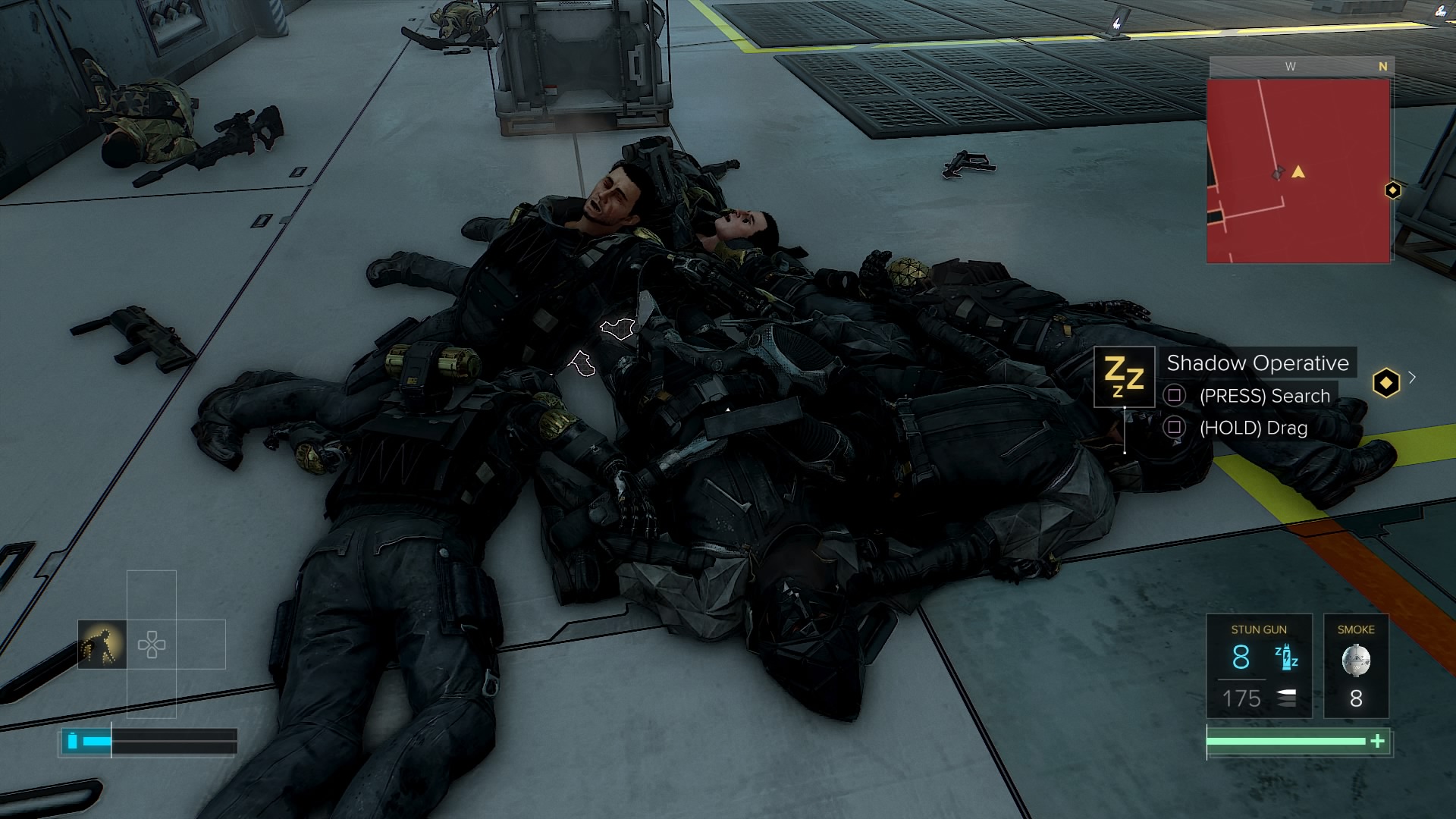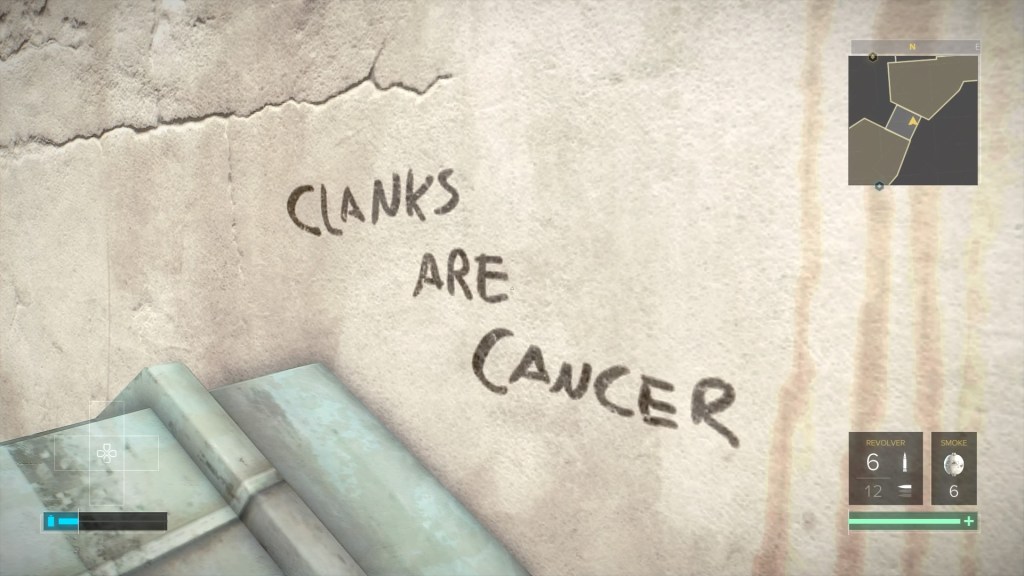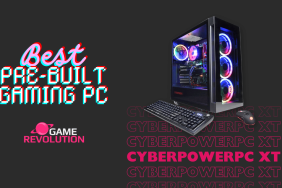Weltschmerz.
Adam Jensen. Augmented badass. Interpol agent. Juggernaut Collective spy. Human Swiss Army Knife. Deadly killer. Silent threat. Damn clank.
Like our cyborg hero, Deus Ex: Mankind Divided is the culmination of numerous working parts, but deep down at its core, the game is about power and powerlessness. As its name suggests and as a direct sequel to Deus Ex: Human Revolution, it focuses primarily on the escalating distrust between the “augmented” and “naturals” after the ending of Human Revolution, when all of the augmented around the world, against their will, went out of control and attacked innocent civilians indiscriminately. Jensen, in the game's optional 12-minute opening video that recaps the twists and turns in Human Revolution, admits that despite his efforts and his many artificial enhancements, he was unable to prevent the world from descending into what the developers at Eidos Montreal call a “mechanical apartheid.”
But Jensen vows to do whatever it takes to prevent the Aug Incident from happening again. Since recovering from his injuries at the end of Human Revolution, he enlists two years later as the only aug counter-terrorist field agent in Task Force 29, a newly-formed special division in Interpol whose base is hidden beneath a quaint shop in Prague. While a part of his motivation is to genuinely dismantle terrorist cells around the world, despite Director James Miller barking orders and Agent Duncan MacReady not trusting the augmented, Jensen's overarching goal is to gain intelligence and snuff out the Illuminati who have been controlling world events behind the scenes. This means secretly sending information to Alex Vega, his point of contact with the hacktivist group Juggernaut Collective, who has the best chance of figuring out who the real players are.
Where the story is successful is in its ability to juggle and weave multiple complex and modern themes together: legalized oppression, police corruption, propaganda, gang warfare, and corporations that hold so much political power that they're above the law. Exploring the crowded streets of Golem City and the multiple districts of Prague, especially near the end of the game, you'll come face-to-face with police brutality and harassment as well as extreme prejudice by most of the non-augmented citizens in the game. By the fourth time Jensen is stopped by an officer who wants to see his papers, you'll likely groan and be frustrated for losing yet another ten seconds of your life—which is the point. The environmental and contextual storytelling, mainly told through the numerous emails, side missions, and Pocket Secretaries you'll read, is excellent.
However, the lack of character development and the forced boss fight at the end leaves the story feeling unfinished and stilted. The relationships Jensen has with the other major characters in the game remain more or less one-dimensional as the story progresses, despite some pivotal decisions you'll make between the Juggernaut Collective and Task Force 29. Taken in pieces, the dialogue itself is well-written, but the larger point is missing. Your standing with each faction and character, as well as dialogue decisions and the completion of side missions, could have had more impact to the story.
The ending leaves much to be desired as well. Jensen will eventually meet an augmented brute with a metal arm, a character who you might have seen in promotional art, and everything about him screams “I'm going to be a boss.” While I was pleasantly surprised by the lack of heavy-handed boss fights, a point which the developers learned from the first game, that hope was dashed every time the character appeared in a cut-scene, if just to remind you that he's going to be a boss. Despite the fact that you can learn the character's tragic backstory, hinting at the idea of giving Jensen the chance to sway him in some fashion through dialogue, he essentially becomes an immutable, mandatory final boss. If there actually is a way to change the parameters of the final boss, that isn't made clear.
Worse, the ending—at least the ending I received—doesn't resolve the city-wide events in Prague and practically ignores what happens to Task Force 29. While it does leave you wanting more in a bittersweet, “to be continued (and please purchase the next Deus Ex)” sort of way, not enough threads are finished off. The core conceit of mechanical apartheid is left lingering, and Jensen's progress in taking down the Illuminati is dubious at best. It feels less like the end of the second act in the franchise and more like the end of the second act in the game itself.
It's also vague whether your gameplay decisions, specifically going non-lethal or lethal as well as going stealthy or guns blazing, slants the story in any way. Apart from the opening mission which blatantly tells you that killing every Jinn might ruin the cover of an Interpol agent who has infiltrated the group, it's unclear whether being a ghost or a murdering psycho matters—when it should matter significantly—beyond maybe a couple of lines of dialogue. I played the majority of my playthrough non-lethally, but it didn't seem to contribute much to the plot aside from extra experience points for being merciful; if there was actually an impact on the plot, it's hidden in the background.
 I may have gone a little overboard…
I may have gone a little overboard…Fortunately, no matter which gameplay method you choose, the action is strategic, adaptive, and downright exemplary. At the press of a button, you can heal, create shortcuts for augments, and swap between weapons and ammo types easily. My method of attack focused on being stealthy, non-lethal, and as close-range as possible, which meant being in cover as much as possible while using the stun-gun or melee attacks. Moving between cover points is easy to control, and with the right augmentations, remaining hidden throughout the level isn't difficult so long as you're patient (and ready to save at any moment). There's nothing like picking apart an enemy stronghold one guard, camera, turret, and robot at a time. Breaking into the Palisades Bank Corporation, knocking out their security defenses, and stealing the latest secrets from the corporate vaults is a guilty pleasure.
Jensen has a smorgasbord of tools at this disposal and earning enough experience points to level up, or obtaining the rare Praxis Kit, will give another point to develop his augmentations. Through a side mission near the beginning of the game, Jensen will discover even more powerful, optional augmentations that essentially turn him into more of a technological powerhouse than he already is. Many of these extra augmentations require special ammunition and act as trump cards if Jensen is a tough situation, but none of them are necessary. In fact, it may be better to improve Jensen's basic attributes like health, biocell energy, radar, and durability given your playstyle.
Better yet, Deus Ex: Mankind Divided rewards players for thorough exploration. Whether it's main missions that take place in separate one-off locations or side missions spread throughout Golem City and Prague, there's almost always a secondary, perhaps even tertiary, way to enter a secure location. Don't be surprised to find yourself forcing your way into a room and then discover a vent nearby, perhaps hidden in the ceiling or behind a movable box, that could have made your life much easier and not have to waste supplies and multi-tools. One time, I stacked three boxes on top of a table to reach an area that was inaccessible otherwise, showing the flexibility of physics system for alternate solutions.
Both Golem City and Prague may seem rather restrictive and confined at first glance, but their verticality and density are impressive. It may seem as though there's no way to reach an open window or find the password to a Level 5 security door, but through some daredevil jumping, vent crawling, and sewer spelunking, it's usually possible. In fact, you may even complete the bulk of several side missions well before you're supposed to, if you're savvy enough, and all of your progress will be kept intact so long as you don't move on with the main missions.
Hacking hasn't changed too much from how it worked in Human Revolution, though it has been downplayed. Not only can you usually find alternative methods to enter a room and avoid hacking altogether, but you'll find passwords to locked doors and computers everywhere. On top of that, any keypad and computer that you can't make your way through can be unlocked using multi-tools, which can be constructed by using 120 crafting parts, a currency that can found in piles everywhere. It's not necessarily a bad thing to de-emphasize hacking since some players might not care for the hacking mini-game, but it is difficult to specialize in hacking since it's spread among three augmentations when Praxis Points could be distributed toward more important skills.
Luckily, you can concentrate on hacking at a later time through New Game Plus, a feature that should be in more RPGs. All of your weapons and Praxis Points are carried over, so you can play on a higher difficulty level and continue to progress. Throughout the game, you can collect Breach Software that will help assist you in Breach Mode, a separate time trial-based mode that concentrates on speed and accuracy. It's a strong diversion that turns the typically methodical gameplay in the main game on its head, stretching the already solid replay value of the game.
Over the course of about 40 hours of gameplay, I experienced a few bugs with various NPCs being alerted and hostile for no apparent reason and a vendor in Prague that froze the game. Moving bodies out of sight can sometimes have them glitch out on a door and accidentally kill the enemy. But hopefully, these bugs will be addressed through the release patch.
Deus Ex: Mankind Divided isn't as polished as it could be, but it still continues the franchise's deft interpretation of modern political, technological, and societal issues without being preachy. Though the story could have brought more attention to the ending and more fully developed the character relationships in the game, the environmental storytelling and exploration through the city of Prague is intricate and memorable. The stealth-based first-person gameplay, paired with the flexibility of the augmentation system, remains as one of the best in the business. Adam Jensen doesn't ask for much, but I'm sure he wants a sequel, and I do too.
-
Fantastic stealth-based action shooter
-
Complex plot with numerous modern themes
-
Forced finale boss
-
Ending leaves a few story threads dangling
-
Solid graphics
-
Successful conveys sense of oppression
-
Extraordinary environmental storytelling
-
Rich, dense cities with a lot of verticality
-
Flexible augmentation system with new additions
-
Hacking has been downplayed
-
Time-trial Breach Mode and New Game+
-
Some strange glitches







